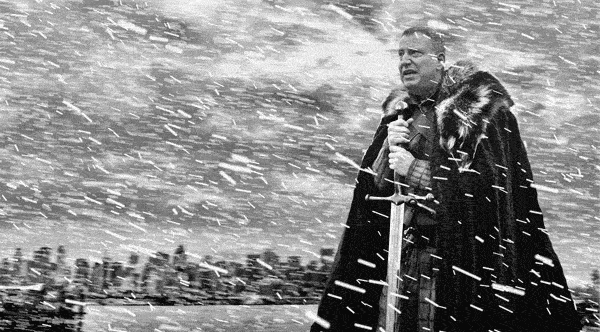Australia Day (previously known as Anniversary Day, Foundation Day, and ANA Day) is the official national day of Australia. Celebrated annually on 26 January, the date commemorates the arrival of the First Fleet at Sydney Cove in 1788 and the proclamation at that time of British sovereignty over the eastern seaboard of New Holland.
Although it was not known as Australia Day until over a century later, records of celebrations on 26 January date back to 1808, with the first official celebration of the formation of New South Wales held in 1818. It is presently an official public holiday in every state and territory of Australia and is marked by inductions into the Order of Australia and presentations of the Australian of the Year awards, along with an address from the governor-general and prime minister.
The date is controversial to some Australians, particularly those of Indigenous heritage, leading to the use of alternate names, such as Invasion Day and Survival Day. Proposals have been made to change the date of Australia Day, but these have failed to gain widespread public support.
Arrival of the First Fleet
On 13 May 1787, a fleet of 11 ships, which came to be known as the First Fleet, was sent by the British Admiralty from England to Australia. Under the command of Captain Arthur Phillip, the fleet sought to establish a penal colony at Botany Bay on the coast of New South Wales, which had been explored and claimed by Captain James Cook in 1770. The settlement was seen as necessary because of the loss of the colonies in North America. The Fleet arrived between 18 and 20 January 1788, but it was immediately apparent that Botany Bay was unsuitable.
On 21 January, Philip and a few officers travelled to Port Jackson, 12 kilometres to the north, to see if it would be a better location for a settlement. They stayed there until 23 January; Philip named the site of their landing Sydney Cove, after the Home Secretary, Thomas Townshend, 1st Viscount Sydney. They also had some contact with the local aborigines.
They returned to Botany Bay on the evening of 23 January, when Philip gave orders to move the fleet to Sydney Cove the next morning, 24 January. That day, there was a huge gale blowing, making it impossible to leave Botany Bay, so they decided to wait till the next day, 25 January. However, during 24 January, they spotted the ships Astrolabe and Boussole, flying the French flag, at the entrance to Botany Bay; they were having as much trouble getting into the bay as the First Fleet was having getting out.
On 25 January, the gale was still blowing; the fleet tried to leave Botany Bay, but only the HMS Supply made it out, carrying Arthur Philip, Philip Gidley King, some marines and about 40 convicts; they anchored in Sydney Cove in the afternoon.
On 26 January, early in the morning, Philip along with a few dozen marines, officers and oarsmen, rowed ashore and took possession of the land in the name of King George III. The remainder of the ship’s company and the convicts watched from onboard the Supply.
Meanwhile, back at Botany Bay, Captain John Hunter of the HMS Sirius made contact with the French ships, and he and the commander, Captain de Clonard, exchanged greetings. Clonard advised Hunter that the fleet commander was Jean-Francois de Galaup, comte de La Perouse. The Sirius successfully cleared Botany Bay, but the other ships were in great difficulty. The Charlotte was blown dangerously close to rocks; the Friendship and the Prince of Wales became entangled, both ship losing booms or sails; the Charlotte and the Friendship actually collided; and the Lady Penrhyn nearly ran aground. Despite these difficulties, all the remaining ships finally managed to clear Botany Bay and sail to Sydney Cove on 26 January. The last ship anchored there at about 3 pm.
Note that the formal establishment of the Colony of New South Wales did not occur on 26 January, as is commonly assumed. That did not occur until 7 February 1788, when the formal proclamation of the colony and of Arthur Phillip’s governorship were read out. The vesting of all land in the reigning monarch George III also dates from 7 February 1788.


 On this day in 1916,
On this day in 1916,  On this day in 1888, the
On this day in 1888, the 
 On this day in 1788, Captain Arthur Phillip guides a fleet of 11 British ships carrying convicts to the colony of New South Wales,
On this day in 1788, Captain Arthur Phillip guides a fleet of 11 British ships carrying convicts to the colony of New South Wales,  On this day in 1905,
On this day in 1905,
Recent Comments